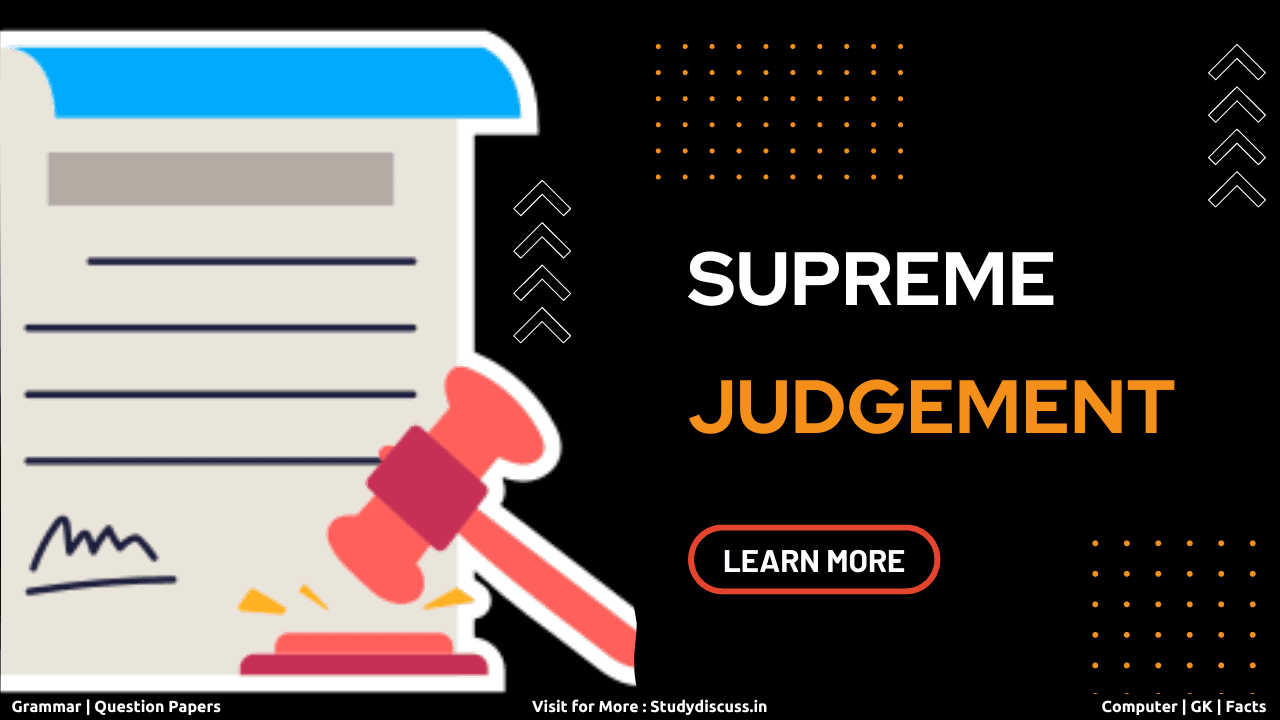
Many Supreme Judgements (Supreme Court) which include Lily Thomas Bigamy Case, Romesh Thapar Case and so on have influenced Indian polity and law profoundly. These significant Supreme Court verdicts are crucial parts of the UPSC syllabus.
Let’s learn all the important details regarding the Lily Thomas Bigamy case.
Supreme Judgements : Lily Thomas Bigamy Case
Case Summary
In the Lily Thomas Bigamy case, a Supreme Court petition was brought up regarding the status of the first marriage in a situation where a non-Muslim converted to the ‘Muslim’ faith without actually changing his or her beliefs or divorcing the first wife. According to the ruling, a divorce decree must be obtained before the marriage can be dissolved under Hindu law simply by converting one’s religion.
Background
- In a petition submitted to the Supreme Court, Sushmita Ghosh claimed that she had been legally wed to Mr. M. C. Ghosh since 1984, according to Hindu customs.
- However, Mr. Ghosh requested a mutually agreeable divorce from Ms. Ghosh in 1992 while claiming to have converted to Islam in order to remarry Ms. Vinita Gupta, a divorcee with two children.
- He also produced a certificate proving his conversion to Islam because the Hindu Marriage Act of 1959 does not allow for bigamy or a second marriage.
- The aforementioned facts make it abundantly clear that Mr. Ghosh only converted to Islam in order to enter into a second marriage and that he had no real faith in his adopted religion.
Also Read : Name of Planets in Hindi, Planets Distance from Sun.
Case Details
The instant petition raised a number of crucial issues for the court to address and decide.
- The issue of implementing a uniform civil code, as provided for in Article 44 of the Constitution, came first and foremost. The right of every citizen to practice and spread their religion, guaranteed by Article 25 of the Constitution, is directly threatened by such implementation.
- Another significant issue before the Court was whether a Hindu husband could convert to Islam in order to enter into a second marriage; if this was allowed, what was the validity of the first and second marriages, respectively?
- Should such a husband be charged with bigamy under Section 494 of the Indian Penal Code when he enters into such a second marriage?
Court’s Ruling
- The Court determined that a Hindu husband who enters into a second marriage after converting does not do so out of conscience and that such a conversion is obviously false and is staged in order to further an ulterior motive.
- Because of the violation of Article 21, it was decided that such a marriage was void and invalid.
- A husband’s conversion to a different religion cannot be used to declare a marriage to be null and void.
- Under various provisions of the Indian Penal Code, a marriage that is contracted by converting to Islam while the first one is still in existence will result in punishment.
- Since marriage is governed by one’s personal law, India has no laws governing marriage.
- As a result, such things could not be codified, and applying the uniform civil code to such a matter would be unfair to one’s own personal convictions.
- However, wrongdoing committed under the guise of such personal law could be punished, as the SC did in this instance by making it unlawful to marry a second wife while already married to the first.
Also Read : Complete Chemical Elements List for Various Exams
Conclusion
Since the Lily Thomas ruling two long decades ago, many questions about conversion and the application of the Uniform Civil Code still go unanswered. Every now and then, issues involving personal law, fundamental rights, and criminal laws resurface, as was the case most recently with the Triple Talaq controversy. The recommendations of numerous law commissions appear to be ignored, and there is still no tangible, long-lasting framework that will adequately address these problems. For there to be no further legal action in this matter, a sensitive solution to these problems is a requirement.
Hope you loved our post “Important Supreme Judgements for UPSC CSE Exam: Lily Thomas Bigamy Case”. Kindly share with your friends and do like & subscribe to our Facebook and Telegram channels for more useful information.




